7 Best Herbal Tinctures For Peptic Ulcers
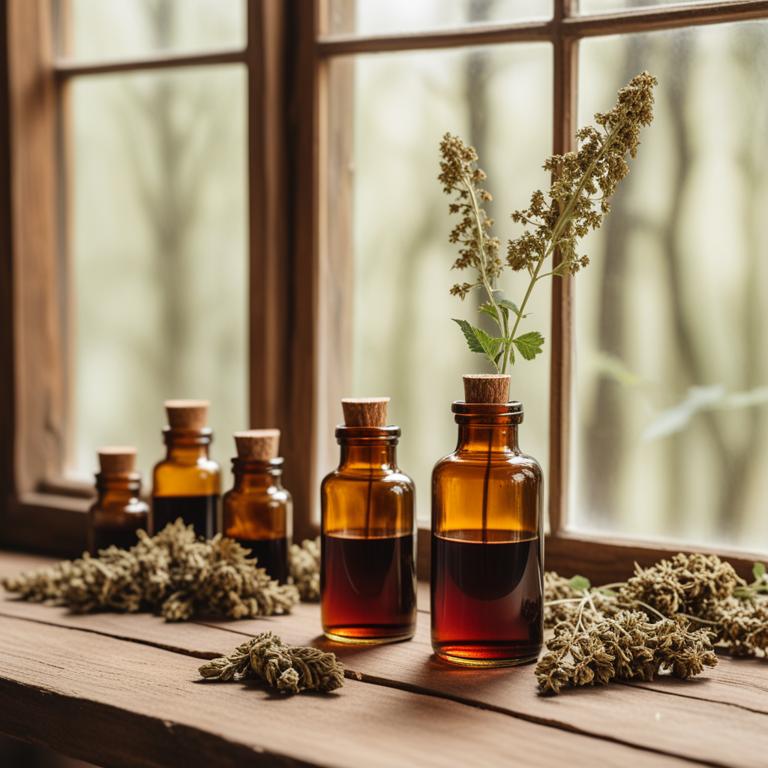
Herbal tinctures for Peptic ulcers are concentrated liquid extracts made from herbs and plants that are used to treat and manage the symptoms of peptic ulcers, a painful and potentially debilitating condition that affects the lining of the stomach and small intestine.
These herbal remedies offer numerous benefits, including reducing inflammation, promoting healing, and improving digestive health, making them a popular alternative to conventional medications.
Some of the most effective herbal tinctures for peptic ulcers include Slippery Elm, which coats and protects the stomach lining, Licorice Root, which soothes and calms inflammation, and Aloe Vera, which reduces acid production and promotes healing.
Additionally, other herbal tinctures such as Ginger, Peppermint, and Chamomile also show promise in treating peptic ulcers due to their anti-inflammatory and calming properties, while Dandelion and Milk Thistle may help to support liver and digestive health, and reduce symptoms of the condition.
According to "Phytotherapy research : PTR", tinctures for peptic ulcers can be made from botanical compounds such as flavonoids (i.e. quercetin, naringin, silymarin, anthocyanosides, sophoradin derivatives) and saponins (i.e. from Panax japonicus and Kochia scoparia).
Below there's a list of the 7 best herbal tinctures for peptic ulcers.
- 1. Glycyrrhiza glabra tinctures
- 2. Commiphora molmol tinctures
- 3. Astragalus membranaceus tinctures
- 4. Zingiber officinale tinctures
- 5. Silybum marianum tinctures
- 6. Berberis aristata tinctures
- 7. Piper nigrum tinctures
Also you may be interested in...
TODAY'S FREE BOUNDLE
Herb Drying Checklist + Herbal Tea Shopping List + Medicinal Herbs Flashcards
Enter you best email address below to receive this bundle (3 product valued $19.95) for FREE + exclusive access to The Aphotecary Letter.
$19.95 -> $0.00
1. Glycyrrhiza glabra tinctures

Glycyrrhiza glabra tinctures have been traditionally used to treat peptic ulcers due to their anti-inflammatory and protective properties on the gastric mucosa.
The bioactive constituents, including glycyrrhizin and flavonoids, in these tinctures help to soothe and heal the ulcers by reducing inflammation and promoting the formation of new tissue.
Glycyrrhiza glabra tinctures also exhibit antimicrobial properties, which can help to eliminate the underlying cause of the ulcers, such as Helicobacter pylori infections.
By reducing inflammation, promoting healing, and eliminating the underlying cause, Glycyrrhiza glabra tinctures provide a natural and effective treatment option for peptic ulcers.
Related Study
According to "Microbial pathogenesis", Glycyrrhiza glabra tinctures for peptic ulcers have been found to have antimicrobial activity against H. pylori, demonstrating their potential as an alternative treatment option for peptic ulcers caused by this pathogen.
2. Commiphora molmol tinctures
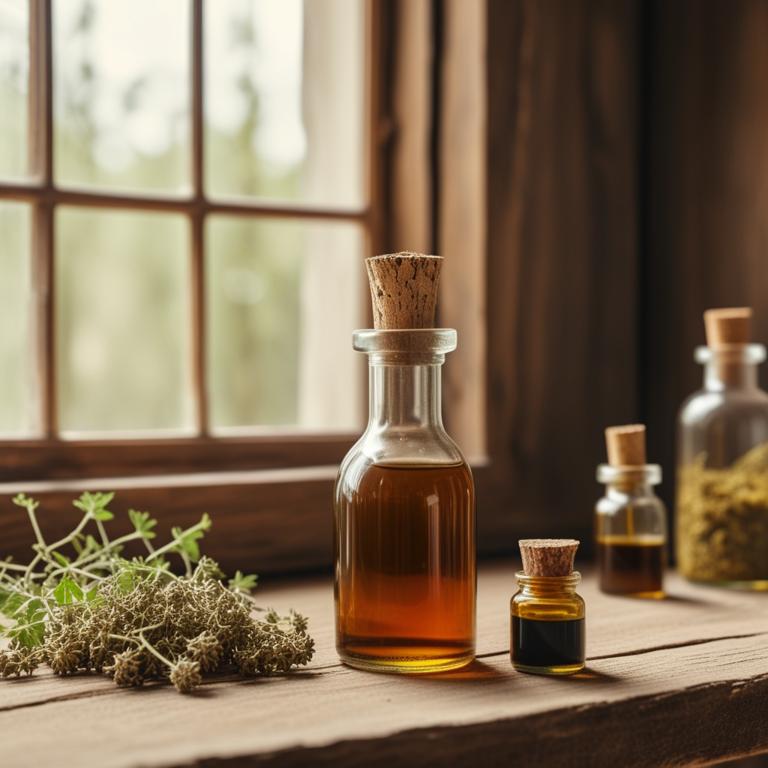
Commiphora molmol tinctures have been traditionally used to treat peptic ulcers due to their anti-inflammatory, antimicrobial, and gastroprotective properties.
The bioactive constituents of Commiphora molmol, such as ferulic acid, cinnamic acid, and sesquiterpenes, help to reduce inflammation and prevent the growth of Helicobacter pylori bacteria, a common cause of peptic ulcers.
By reducing inflammation and preventing bacterial overgrowth, Commiphora molmol tinctures help to accelerate the healing of peptic ulcers and alleviate symptoms such as abdominal pain and nausea.
The benefits of using Commiphora molmol tinctures to treat peptic ulcers include reduced risk of complications, accelerated healing time, and minimal side effects, making it a promising alternative to conventional treatments.
Related Study
According to "Clinical and experimental pharmacology & physiology", Commiphora molmol tinctures (also known as mastic) were shown to have an ulcer healing effect, with symptomatic relief occurring in 80% and endoscopically proven healing in 70% of patients with peptic ulcers.
3. Astragalus membranaceus tinctures
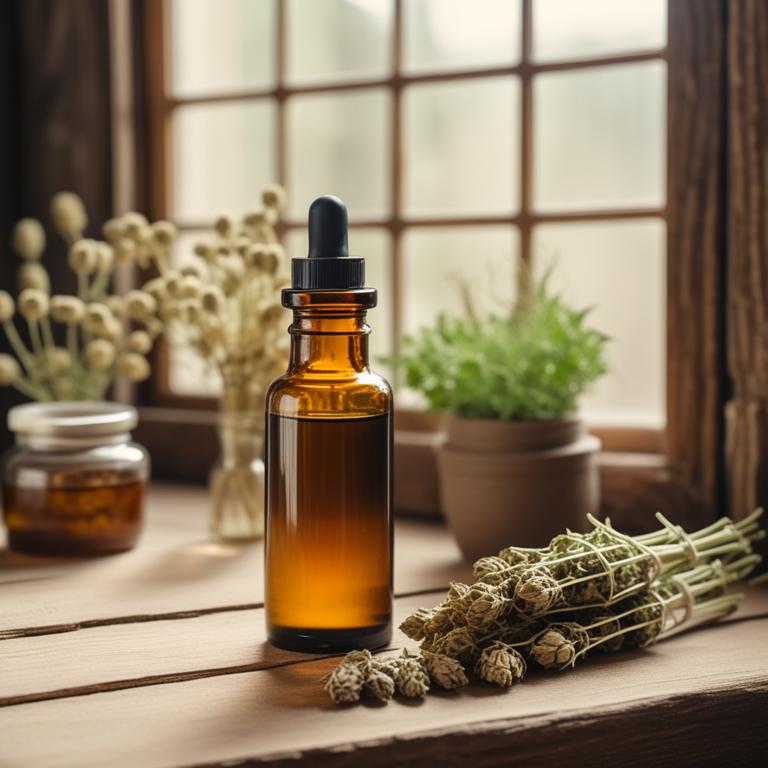
Astragalus membranaceus tinctures are a traditional herbal preparation used to treat peptic ulcers by virtue of their anti-inflammatory and gastroprotective properties.
The bioactive constituents of Astragalus membranaceus, including flavonoids, saponins, and polysaccharides, help to reduce inflammation, promote wound healing, and protect the gastric mucosa, ultimately alleviating the symptoms of peptic ulcers.
By modulating the immune response and enhancing the production of mucus in the stomach, Astragalus membranaceus tinctures help to create a protective barrier against acid and pepsin, thereby accelerating the healing process.
The benefits of using Astragalus membranaceus tinctures to treat peptic ulcers include reduced pain, decreased risk of complications, and improved overall quality of life.
4. Zingiber officinale tinctures

Zingiber officinale tinctures, derived from the rhizome of the ginger plant, have been traditionally used to treat peptic ulcers due to its anti-inflammatory and antioxidant properties.
The bioactive constituents present in these tinctures, such as gingerols and shogaols, help to reduce inflammation and protect the mucous lining of the stomach, thereby alleviating symptoms of peptic ulcers.
The use of Zingiber officinale tinctures has been found to promote healing of the gastric mucosa, reduce acid secretion, and alleviate pain and discomfort associated with peptic ulcers.
The benefits of using Zingiber officinale tinctures to treat peptic ulcers include reduced risk of complications, improved quality of life, and a natural alternative to conventional medications.
5. Silybum marianum tinctures
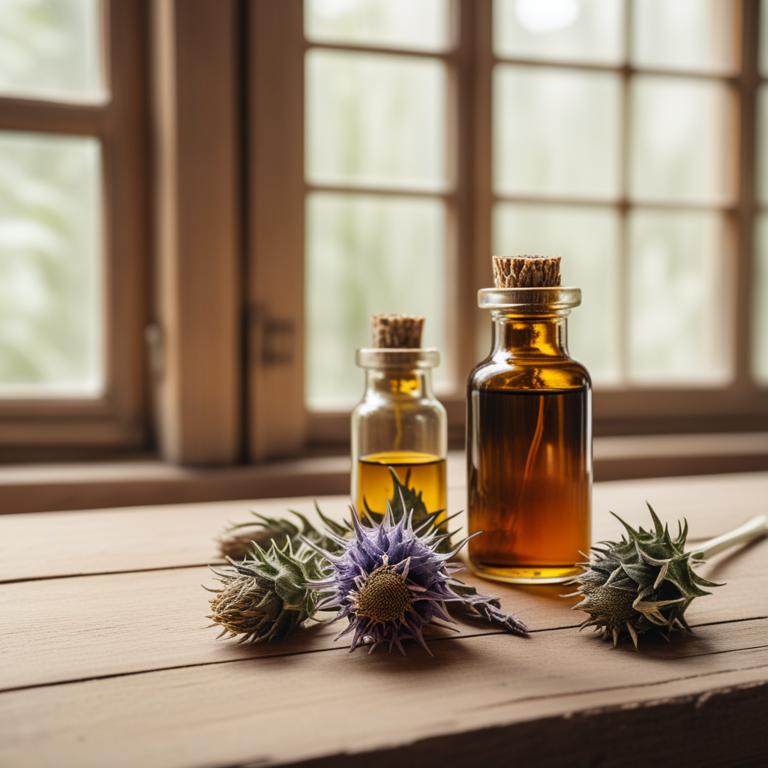
Silybum marianum tinctures, derived from the milk thistle plant, have been traditionally used to treat peptic ulcers due to their anti-inflammatory and antioxidant properties.
The tannins, flavonoids, and silymarin present in the tinctures help to protect the stomach lining, reduce inflammation, and promote healing, thereby alleviating the symptoms of peptic ulcers.
Silymarin, in particular, is known to have gastroprotective effects, which help to prevent further damage to the stomach lining and promote the healing of existing ulcers.
Regular use of Silybum marianum tinctures has been found to provide relief from peptic ulcers, reducing pain, inflammation, and bleeding, and promoting overall digestive health.
6. Berberis aristata tinctures
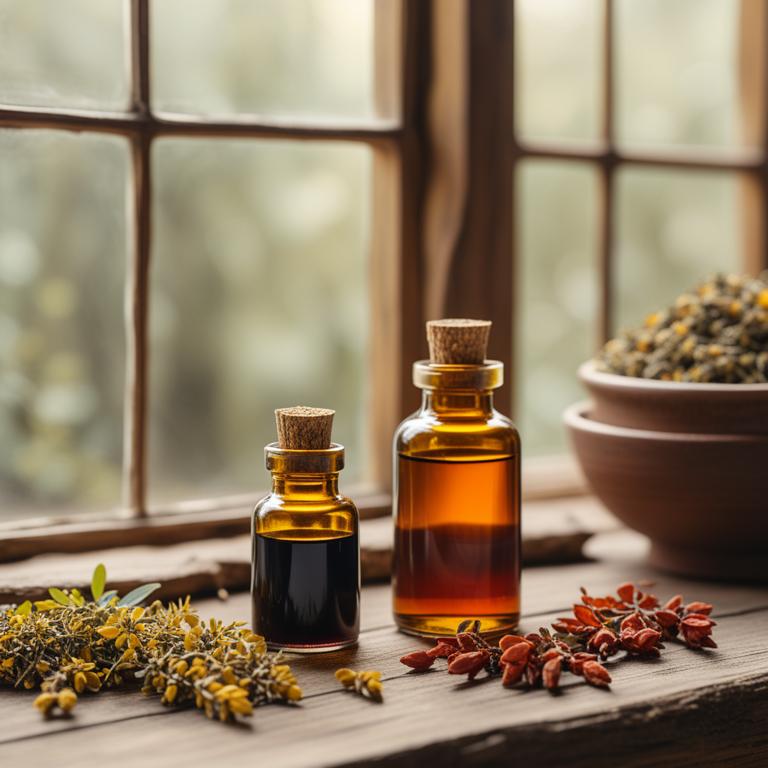
Berberis aristata tinctures have been traditionally used to treat peptic ulcers due to their anti-inflammatory and antioxidant properties.
The bioactive constituents of Berberis aristata, such as berberine and alkaloids, help to treat peptic ulcers by reducing inflammation and promoting the healing of the gastric mucosa.
Berberis aristata tinctures are believed to help treat peptic ulcers by inhibiting the production of stomach acid and protecting the mucous lining of the stomach, thus providing relief from symptoms such as pain and nausea.
The benefits of using Berberis aristata tinctures to treat peptic ulcers include reduced inflammation, accelerated healing, and a decrease in the risk of complications and recurrence.
7. Piper nigrum tinctures
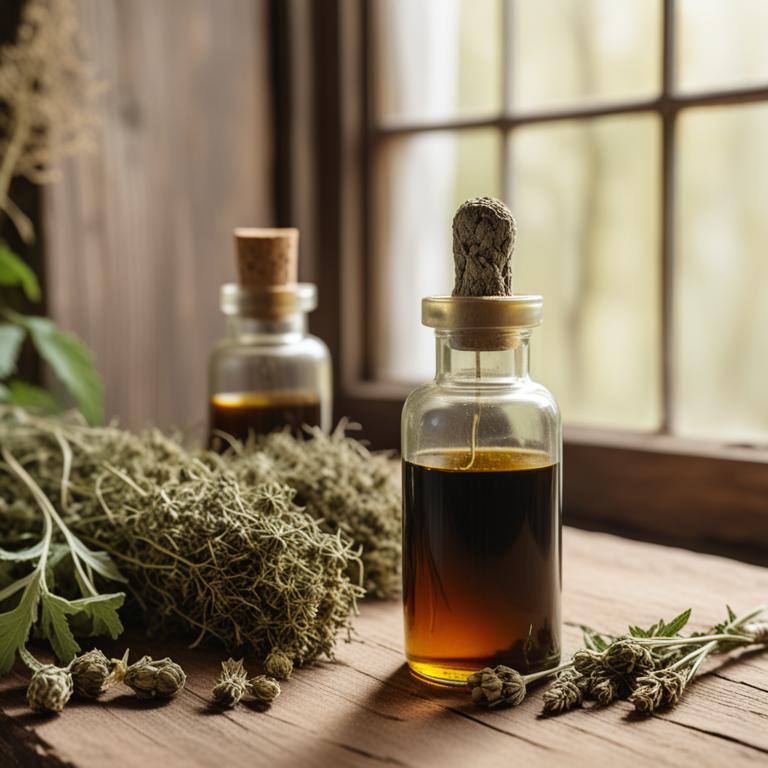
Piper nigrum tinctures, derived from the black pepper plant, have been traditionally used to treat peptic ulcers due to their anti-inflammatory and antioxidant properties.
The bioactive constituents present in piper nigrum tinctures, such as piperine and beta-carophyllene, help to reduce inflammation, protect the mucous membrane, and enhance digestion, thereby alleviating peptic ulcer symptoms.
By inhibiting the production of stomach acid and promoting the healing of the mucous lining, piper nigrum tinctures provide relief from pain, discomfort, and bleeding associated with peptic ulcers.
The benefits of using piper nigrum tinctures for treating peptic ulcers include reduced risk of complications, faster recovery, and a decrease in the reliance on conventional medications.